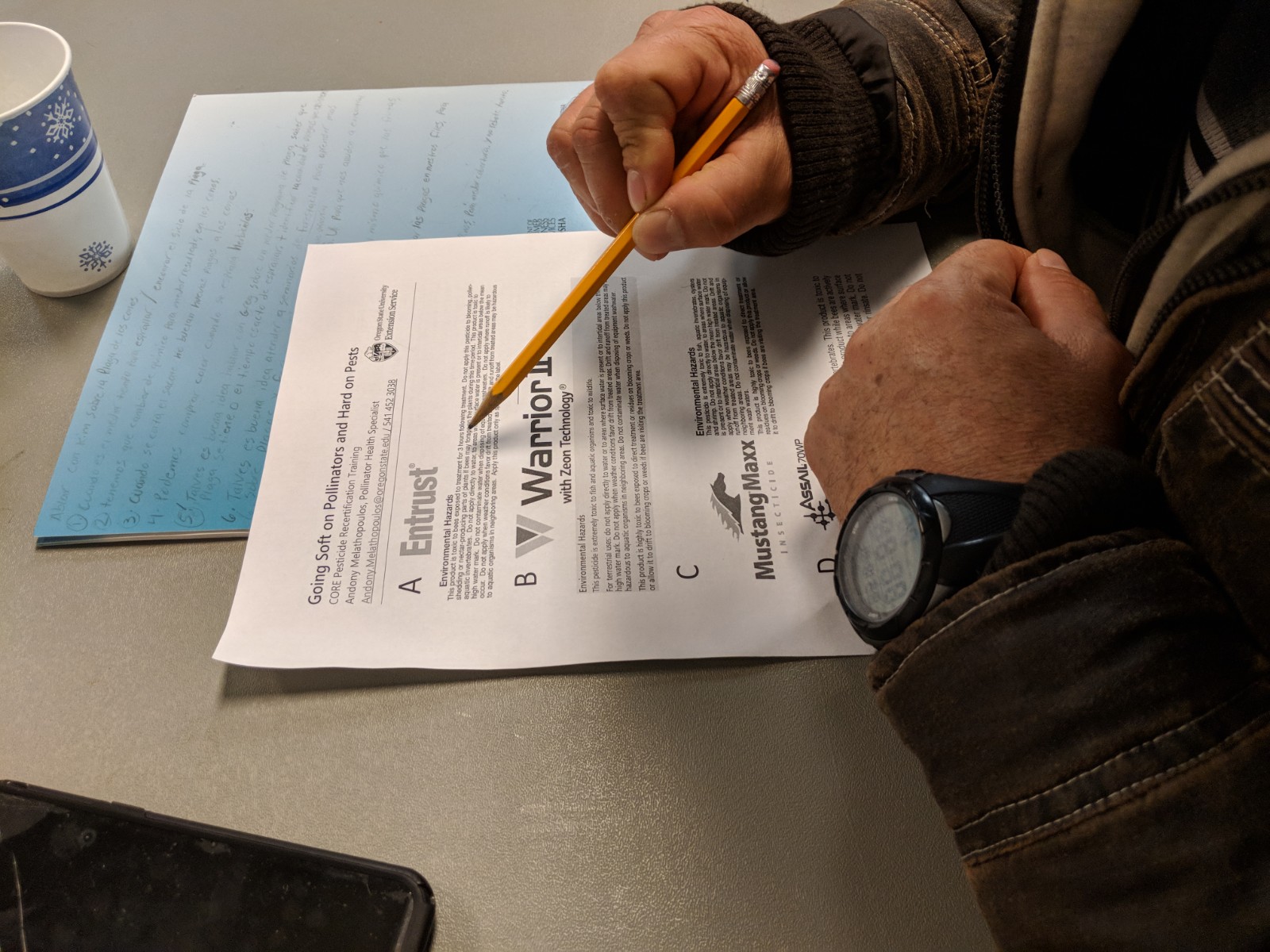The Oregon Bee Project is making it easier than ever to find the resources you need to make informed decisions when it comes to pesticides and pollinators, whether making pesticide applications, in a garden, urban, or agricultural setting. In 2017, the Oregon Department of Agriculture registered over 13,000 pesticide products for distribution and use within the state. During the same year, there were over 13,500 pesticide applicators licensed by the Oregon Department of Agriculture, which does not include homeowners or other people making pesticide applications that do not require a state pesticide applicator license.
Pesticides pose risk to bees and other non-target organisms, and that risk is magnified when the proper precautions outlined on all pesticide labels are not followed. The Oregon Bee Project is working on several initiatives to ensure that pesticide applicators are better informed about the pesticides they are using and the potential risks those products pose to bees with all the different pesticide products available and the number and diversity of pesticide applicators in mind.
One initiative, led by OSU Pollinator Health, Oregon State Beekeepers Association, and Oregon Department of Agriculture, is to increase trainings and create new training materials in the state. With a goal of reducing potential pesticide exposure to bees at and beyond the site of application, the Oregon Bee Project is creating learning opportunities for pesticide applicators as part of existing licensing procedures. The new content includes information about how pesticide exposure can occur, and pesticide properties like residual toxicity.
are you someone who is...
- Buying, applying, or supervising the use of Restricted Use Pesticides?
- Advising others on the use of Restricted Use Pesticides?
- Applying pesticides to someone else’s property (private or public land)?
- Applying pesticides as a public employee using machine-powered equipment and/or applying Restricted Use Pesticides?
- Applying pesticides on school propertie?
If you said yes to any of the above, you need a license. Find out more about licensing information at Oregon Department of Agriculture.
resources for pesticide applicators
- How to Reduce Bee Poisoning from Pesticides (links to the iPhone and Android apps) Oregon State University Extension (2016)
- Guidance to Protect Habit from Pesticide Contamination. Xerces Society (2017)
- How Neonicotinoids Can Kill Bees The Science Behind the Role these Insecticides Play in Harming Bees. The Xerces Society (2016)
- Minimizing Honey Bee Exposure to Pesticides. University of Florida Institute of Food and Agricultural Sciences Extension (2017)
- Neonicotinoid Pesticides and Honey Bees. Washington State University Extension Fact Sheet (2013)
- Protecting Bees from Pesticides. Iowa State University Extension and Outreach (2013)
- Protecting Honey Bees from Pesticides. Purdue Extension (2014)
Farm Applicators
- Honey Bee Best Management Practices for California Almonds. California Almond Board.
- Minimizing Pesticide Risk to Bees in Fruit Crops. Michigan State University. (2015)
- Know Your Beekeeper: Communication is Key. North Carolina.
HomeOWNERS
- Bumble Bees, Trees and Neonicotinoids. Oregon Department of Agriculture (2015)
- Pollination and Protecting Bees on Other Pollinators. Home Garden Series. Washington State University Extension. (2015)
- Protecting and Enhancing Pollinators in Urban Landscapes for US North Central Region. Michigan State University Extension (2016)
- Solving Your Pest Problems Without Harming Pollinators. Pollinator Partnership
- Ten Ways to Protect Bees from Pesticides. Washington State Department of Agriculture
Horticultural industries
- Bumble Bees, Trees and Neonicotinoids. Oregon Department of Agriculture (2015)
- Grow Wise, Bee Smart: Best Management Practices (BMPs) for Bee Health in the Horticultural Industry (Horticultural Research Institute, 2017)
- Protecting and Enhancing Pollinators in Urban Landscapes for US North Central Region. Michigan State University Extension (2016).
Vector and Mosquito Control
- Naled for Mosquito Control EPA (n.d.)
- Mosquito Control and Pollinator Protection Michigan Mosquito Control Association (Jul. 2016)
- Adult Mosquito Control and Honey Bee Safety Colorado Environmental Pesticide Education Program (Jun. 2006)
- Mosquito Control and Beekeepers University of Florida (May 2009)
- How to Help Your Community Create an Effective Mosquito Management Plan Xerxes Society (2014)
- Best Management Practices for Mosquito Control Washington State Department of Ecology Water Quality Program (May 2004)
Vegetation Management
- Plight of the Pollinator: Save Money, Time and Energy with IVM and Energy Rights-of-Way for Wild Pollinators (Pollinator Partnership).
- Technical Manual for Maintaining Roadsides for Pollinators. Pollinator Partnership.



